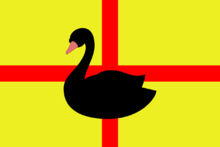| Line 78: | Line 78: | ||
== Gallery == | == Gallery == | ||
<gallery> | <gallery> | ||
File:Propertarian_Getting_Owned.png|Credit [https://www.reddit.com/user/IDK_LEL u/IDK_LEL] [https://www.reddit.com/r/Polcompball/comments/ltfno7/landlords_are_truly_oppressed_in_todays_society/ Source] | |||
</gallery> | </gallery> | ||
Revision as of 21:47, 27 February 2021
Propertarianism, or Proprietarianism, is a political philosophy which reduces ethics to the right of private property[1]. It's an advocator of property, largely related to Neo-Lockean homestead principle, which states that the only ways property can be legitimately obtained is through applying your labor to unowned land or to trade it or being gifted it by the previous owner, although it chooses to reject the Lockean proviso, which states that it is only applicable when there is enough and of same quality for everybody else.
It is closely related to ![]() Right-Libertarianism because of its similar advocacy for the right to private property. It also usually related to the idea that the state monopoly should be replaced for systems like contractual law, the state only enforcing these contracts and private property. Propertarianism, although it can said of being advocated by Capitalism in general, is more closely advocated by
Right-Libertarianism because of its similar advocacy for the right to private property. It also usually related to the idea that the state monopoly should be replaced for systems like contractual law, the state only enforcing these contracts and private property. Propertarianism, although it can said of being advocated by Capitalism in general, is more closely advocated by ![]() Anarcho-Capitalists and
Anarcho-Capitalists and ![]() Minarchist circles.
Minarchist circles.
According to certain advocated it is simply a synonymous with ![]() Capitalism[2]
Capitalism[2]
History
The term was coined by Edward Cain in 1963 since the use of Liberty of some Libertarian circles at the time used property as a synonym with "liberty" he thought that it would be useful to have a term to refer to people whose definition of liberty is similar to this. In his words he also lists ![]() Ayn Rand as a Radical Capitalist and the closest to that term that he could think of.[3]
Ayn Rand as a Radical Capitalist and the closest to that term that he could think of.[3]
Then, Propertarian was used by Marcus Cunliffe as a characteristic of American history as a whole[4] and then by David Boaz as the main moral and institutionally/legally ensured the creation of privacy rights[5].
Then, Brian Doherty, regards ![]() Murray Rothbard styled Libertarianism as a Propertarianist due to his "reduction" of human rights to the right of property, starting with the natural right to self-ownership.[6]
Murray Rothbard styled Libertarianism as a Propertarianist due to his "reduction" of human rights to the right of property, starting with the natural right to self-ownership.[6]
Personality and Behavior
- Acts like a stereotypical property owner.
How to Draw

- Draw a ball,
- Color the ball yellow (#EDEF22),
- Put a red (#D00A1B) cross in the middle,
- Make a grey (#232323) swan and give it a lighter red (#DE3F2A) bill,
- Add the eyes and you're done!
Relationships
Friends
 Capitalism - I am synonymous with you.
Capitalism - I am synonymous with you. Classical Liberalism - The whole reason property rights and Capitalism got to be applied at all
Classical Liberalism - The whole reason property rights and Capitalism got to be applied at all Minarchism - The state is only there to enforce contracts and protect private property
Minarchism - The state is only there to enforce contracts and protect private property Anarcho-Capitalism - Same as above but enforced by companies, I guess
Anarcho-Capitalism - Same as above but enforced by companies, I guess
Frenemies
- Any ideologies that are ambivalent towards land owners.
Enemies
 Marxism–Leninism - Dirty land stealer.
Marxism–Leninism - Dirty land stealer. Georgism - Stupidhead who tries to take away a landowner's rights of proprietorship.
Georgism - Stupidhead who tries to take away a landowner's rights of proprietorship. Maoism - Same as above but BUT EVEN DUMBER!
Maoism - Same as above but BUT EVEN DUMBER! Communalism - EWWWW
Communalism - EWWWW Mutualism - Calls me a thief for loving my property and thinks the exact opposite of what I think!
Mutualism - Calls me a thief for loving my property and thinks the exact opposite of what I think!
Further Information
Websites
Wikipedia
References
- ↑ Ralf M. Bader, John Meadowcroft, eds. (2011), The Cambridge Companion to Nozick's Anarchy, State, and Utopia, Cambridge University Press, p. 151.
- ↑ Ayn Rand, Nathaniel Branden, Alan Greenspan, Robert Hessen (1967). Capitalism: The Unknown Ideal. New York City: Signet.
- ↑ Edward Cain (1963). They'd Rather Be Right: Youth and the Conservative Movement. Macmillan. pp. 32–36.
- ↑ Marcus Cunliffe, The right to property: a theme in American history, Sir George Watson lecture delivered in the University of Leicester, 4 May 1973, Leicester University Press, 1974.
- ↑ David Boaz, Cato Institute, Toward liberty: the idea that is changing the world : 25 years of public policy from the Cato Institute, Cato Institute.
- ↑ Doherty, Brian (2008). "Rothbard, Murray (1926–1995)". In Hamowy, Ronald (ed.). The Encyclopedia of Libertarianism. Thousand Oaks, CA: SAGE; Cato Institute. p. 442–445.
Gallery
Template:Libright Template:Libertarian
